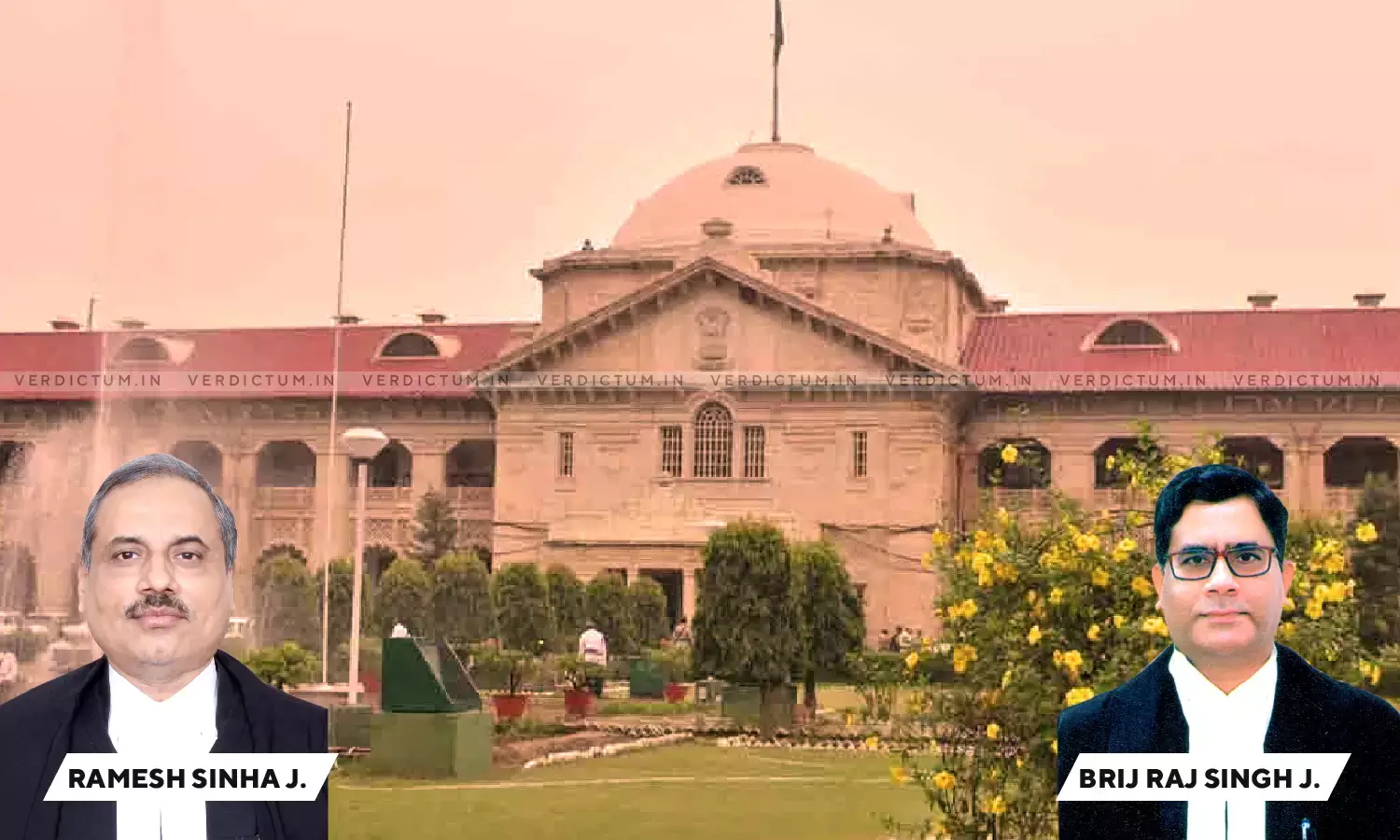Rarest Of Rare Case- Allahabad HC Confirms Death Sentence Of Man Who Killed His Wife And 4 Minor Daughters

The Allahabad High Court has upheld the conviction and confirmed the death sentence of a man who had killed his wife and four minor daughters in 2011, suspecting that she had developed illicit relations with someone in the village.
Dismissing the appeal filed on behalf of the appellant, a Bench of Justice Ramesh Sinha and Justice Brij Raj Singh observed, "This court is of the view that the motive is proved by the prosecution; the prosecution witnesses had fully supported the prosecution case and proved their presence at the time of the incident on the place of occurrence; the medical evidence has also corroborated by the disclosure statement made by the appellant - Deen Dayal Tiwari - himself before the police; and the appellant was arrested on spot by the police with the weapons of assault."
Earlier, government pleader Vimal Srivastava had argued that it was a case which could be said to be in the category of "rarest of rare" and justified award of death punishment to Tiwari.
Accepting the plea, the bench held, "We are also clearly of the view that appellant is a menace to the society and there is no chance of his rehabilitation or reformation and no leniency in imposing punishment is called for."
The Court had appointed Senior Advocate Jyotindra Mishra as an Amicus Curiae in the case.
Dinanath Tiwari had lodged an FIR on November 12, 2011 at Pura Kalandar police station in Ayodhya alleging his elder brother killed his wife Siyallali (36) and daughters Mani (11), Riya (8), Guddan (6) and Mahima (4).
Dinanath Tiwari claimed that when he and his wife reached his elder brother's house on hearing screams, Deen Dayal Tiwari came out armed with a blood stained axe and confessed he killed all of them. On raising an alarm, villagers gathered.
The Additional Sessions Judge of Ayodhya had convicted Deen Dayal Tiwari under section 302 of IPC and awarded death sentence on January 30, 2014.
Deen Dayal Tiwari moved the High Court and pleaded not guilty saying that his brother eliminated his family in the greed of property and falsely implicated him. He had argued that he was not present in the place of the incident as he was sleeping in a barn for saving his paddy on the date and time of the incident.
The Amicus Curiae's argument of alibi was rejected by the Court. "This defence of alibi which has been pleaded by the appellant has not been proved by him, as enjoined upon him by Section 106 of the Evidence Act", the Court held.
Dismissing his appeal, the High Court confirmed the sentence.
"Here is a case which can be said to be in the category of "rarest of rare" case and justify award of death punishment to convict/appellant. We are also clearly
of the view that convict/appellant is a menace to the society and there is no chance of his rehabilitation or reformation and no leniency in imposing punishment is called for", the Court held while upholding the sentence.
It, however, has said that the execution of death sentence shall stand postponed until the period allowed for preferring appeal to the Supreme Court has expired and if an appeal is preferred within that period, until such appeal is disposed of.
"It is also clarified that death punishment shall only be executed in accordance with law complying with all guidelines laid down by the Supreme Court time and again," said the Bench.
Click here to read/download Judgment

